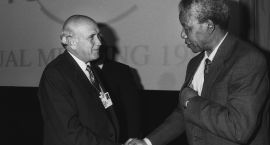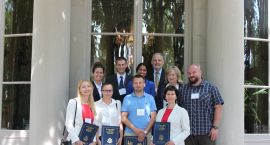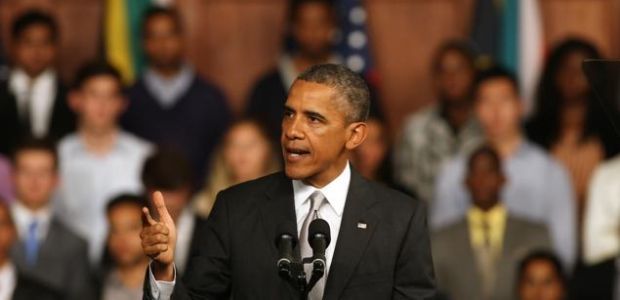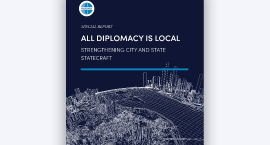Global leadership is about understanding the complex interplay of economic, political, social, and cultural forces that impact global competitiveness and effectiveness. It’s about meeting heightened economic and social responsibilities as competition intensifies and stakeholder expectations increase. It’s about establishing a culture of innovation and the adoption of best practices, drawing on ideas and initiatives from multiple cultures and spheres. Global leadership is also about understanding how government and policy, private enterprise and profit drivers, people and their perceptions are shaping the rapidly expanding and increasingly competitive world in which we live.
In his June 30th speech at the University of Cape Town, President Obama’s displayed visionary leadership and cultural cognizance in connecting the challenges and choices of an older generation with the opportunities and optimism of today’s emerging, young leaders. Equally important, President Obama exhorted a range of stakeholders to collaborate and take action – from individuals and civil society to institutions and governments – in the United States, South Africa, and throughout the African continent.
In his speech, President Obama announced the United States’ pivot from “a simple provision of assistance [and] foreign aid, to a new model of partnership between America and Africa – a partnership of equals that focuses on your capacity to solve problems and your capacity to grow”[1]. Noting that South Africa is one of the world’s economic centers, and that many of the fastest-growing economies in the world are in Africa, President Obama stressed that now is the time for the young people of Africa to make a new commitment to achieving global leadership.
As the largest economy on the continent, South Africa is a major driver in a world that is increasingly competitive and rapidly changing. Navigating the challenges and seizing the opportunities of the global economy requires individuals and institutions, private enterprise and civil society to begin to shape and implement global strategies to enhance operational performance and organizational resiliency. Heightened economic and social responsibilities have driven South Africans and people across Africa to better understand both the stakeholders in their cities and regions, as well as those that stretch across boundary lines.
As President Obama’s Young African Leaders Initiative (YALI) prepares to connect Africa’s emerging leaders with leaders on the continent and around the world, the global leadership imperative becomes clear. All of us, who have been selected for leadership, must follow President Obama’s example of global leadership. We must be collaborative and open, and we must develop the competency to seize opportunities, operate more effectively, compete more efficiently, and engage more strategically. Essentially – we must become true Global Leaders.
[1] Office of the Press Secretary. The White House. Remarks by President Obama at the University of Cape Town. June 30, 2013. Cape Town, South Africa. www.whitehouse.gov.
















